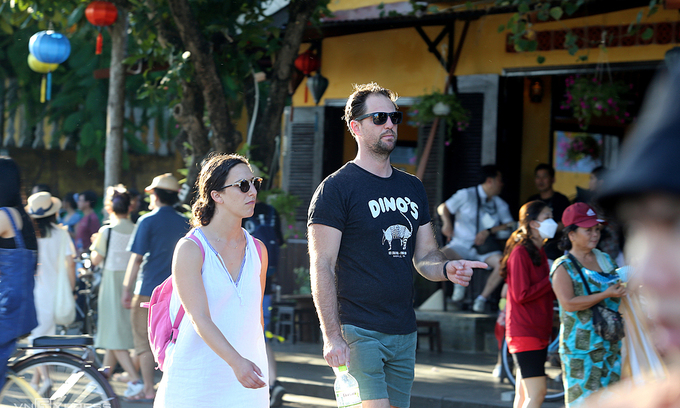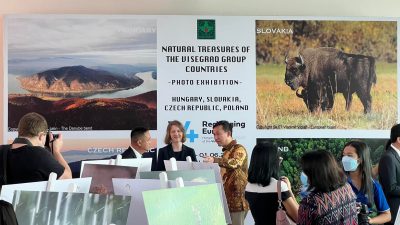
The number of new hospitality businesses is rising, but a shortage of staff and tourists from pre-Covid major markets are hampering the tourism industry’s revival.
The number of foreign tourists rose 582 percent year-on-year to 602,000, while over 3,000 new accommodation and hospitality businesses were registered, up nearly 28 percent year-on-year, according to the General Statistics Office.
However, as 60.8 million domestic tourists started to travel after two years of Covid-19 constraints, businesses are struggling to recruit enough staff to cater to the surging demand in many localities.
“Recruitment is difficult for the whole industry. In our hotel chain, each staff has to undertake several different jobs,” said Vo Thi Thien Huong, director of business and marketing at Fleur De Lys Hospitality hotel chain.
Jakob Helgen, Marriott International area vice president for Thailand, Vietnam, Cambodia and Myanmar, said many companies are experiencing a labor crisis as employees were forced to quit in droves during the Covid-19 restrictions.
Other hotels have reported staff shortage in the reception, housekeeping and food and beverage departments.
The reason for the shortage is erstwhile staff had left for other jobs over the last two years, said Le Thi Ngoc Cuong, director of business and marketing at The Secret Con Dao hotel.
“Many former tourism staff have found other stable jobs and so it is unlikely that they will return.”
Phan Trong in Ho Chi Minh City is one of the former tourism staff who is unlikely to return.
The 33-year-old had worked as a tour guide for five years before leaving for a new job last year, when most tourism activities were shut down.
He now works as a group leader for a call center with a salary of VND13 million ($556) a month.
“My salary is the same as before. Even though the new job is a little bit more demanding, I have settled down with it and do not want to go back.”
Le Nguyen Ngoc Thanh, country director at headhunting platform Adecco Vietnam, said that demand for tourism, hospitality and accommodation staff has increased since the first quarter, but many companies were struggling to fill the empty positions.
Adding to the shortage is the lack of skill among workers, with many receiving no training or the last two years and fresh graduates having no experience, she added.
In addition, many workers who left for their hometowns are reluctant to return to major cities because of high living costs and inadequate salary offers, she said.
Missing tourists
Another key problem for the industry is the lack of foreign tourists.
The 602,000 foreign tourist arrivals in the first six months marked a decline of nearly 93 percent over the same period in 2019, when the pandemic had yet to hit the world.
The four major markets of China, South Korea, Japan and Taiwan together accounted for 66 percent of foreign tourists in the first six months of 2019, but as these countries and territories still maintained quarantine policies for returning tourists, people were not eager to fly.
The Russia-Ukraine crisis has also blocked Russian tourists, who used to pack Nha Trang and Mui Ne beaches.
The Russia-Ukraine tension and China’s ‘zero Covid’ policy has had a major impact on Vietnam’s tourism recovery, said HSBC’s country head of markets and securities services Ngo Dang Khoa.
Inflation and Covid-19 are other factors that keeps tourists from traveling globally, he added.
One of the solutions the Vietnam National Administration of Tourism has proposed is better utilization of the markets that Vietnam has resumed air travel with, such as South Korea, Japan, Western Europe, Australia and ASEAN.
New markets that should be focused are India, U.S. and the Middle East, it has said.
Thanh suggested that tourism companies provide trading for college graduates and employ part-term workers.
“Businesses should conduct surveys on workers’ expectations in terms of salary and benefits and make necessary changes.”
Thanh also proposed that companies try to reach out to former employees and convince them to come back.
Trong said scenario was unlikely, at least for now.
“There are still so many global issues like geopolitical tensions, diseases and natural disasters. If I go back and the industry freezes again, that would be a tragedy.”
Source: VnExpress

